Find Help
More Items From Ergsy search
-

Type 1 Diabetes supporting adults to manage Type 1 diabetes
Relevance: 100%
-
What is type 1 diabetes?
Relevance: 99%
-

Is Type 2 Diabetes hereditary?
Relevance: 98%
-
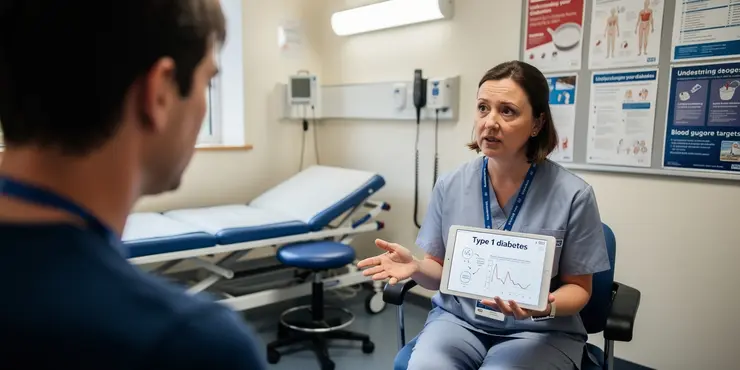
What is type 1 diabetes?
Relevance: 98%
-
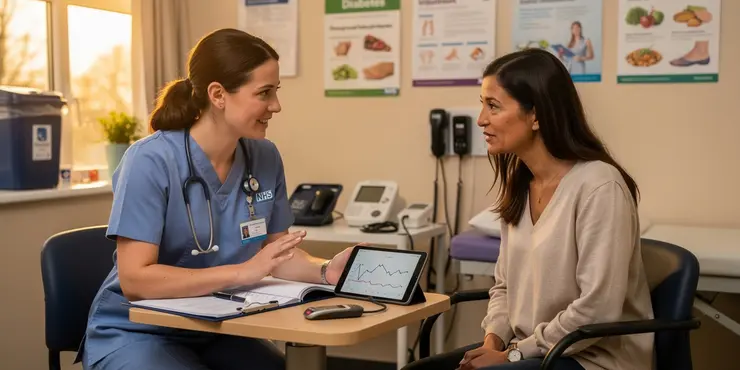
What Is Type 2 Diabetes? | 2 Minute Guide | Diabetes UK
Relevance: 95%
-
What is the difference between type 1 and type 2 diabetes?
Relevance: 95%
-
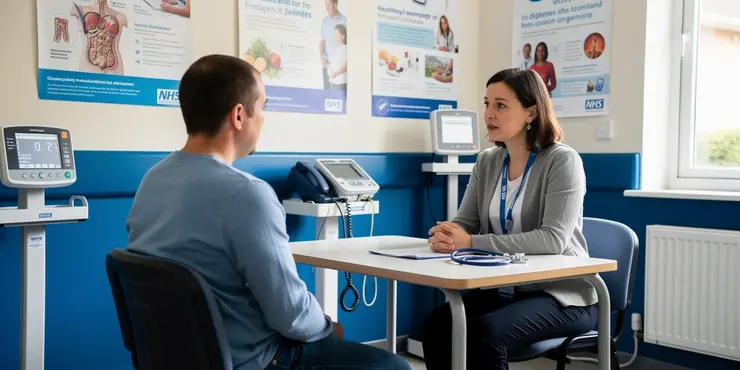
Is Ozempic suitable for type 1 diabetes?
Relevance: 94%
-
Is there a genetic predisposition to type 1 diabetes?
Relevance: 94%
-

What causes Type 2 Diabetes?
Relevance: 93%
-
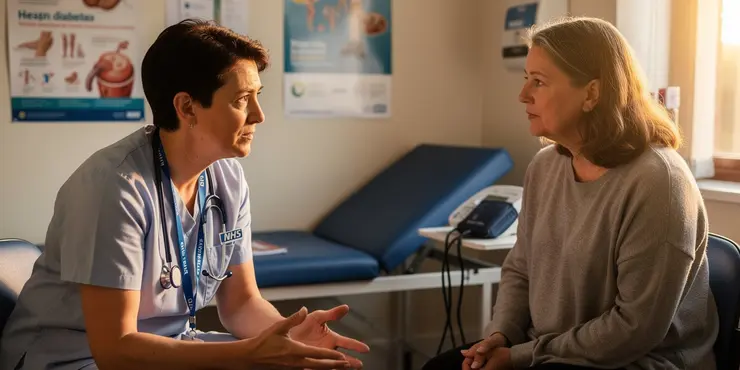
Can Type 2 Diabetes go away?
Relevance: 93%
-
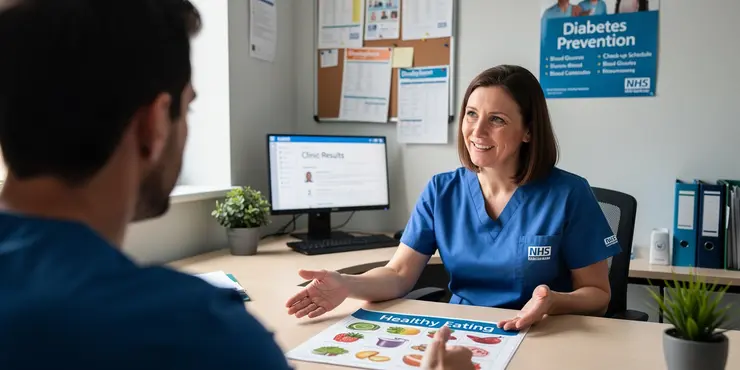
Can Type 2 Diabetes be prevented?
Relevance: 93%
-
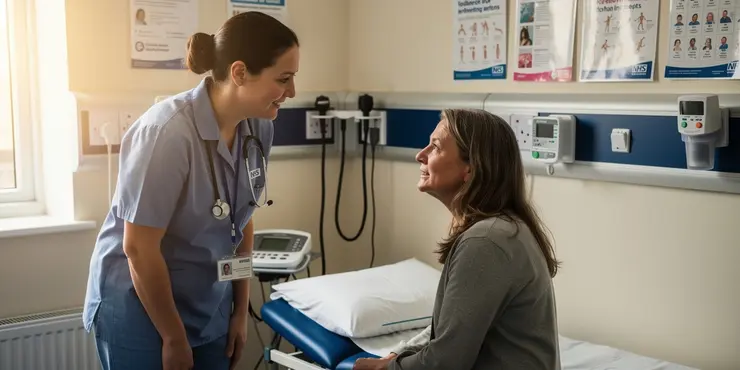
What are the symptoms of Type 2 Diabetes?
Relevance: 92%
-

How is Type 2 Diabetes diagnosed?
Relevance: 92%
-
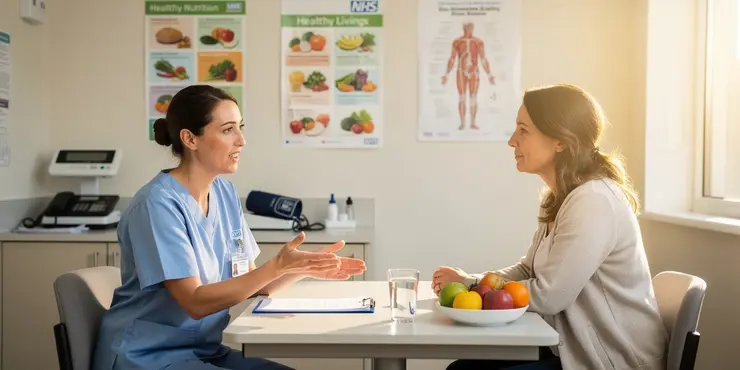
How to manage type 2 diabetes
Relevance: 92%
-

Can Mounjaro be used in type 1 diabetes?
Relevance: 90%
-

How is Type 2 Diabetes treated?
Relevance: 89%
-
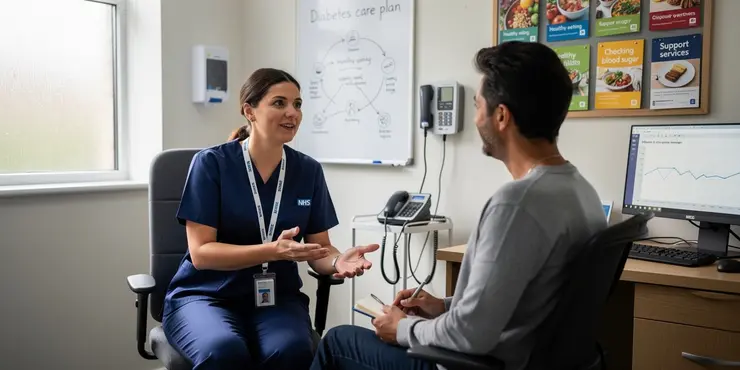
What complications are associated with Type 2 Diabetes?
Relevance: 88%
-
Should I screen my child for type 1 diabetes?
Relevance: 88%
-
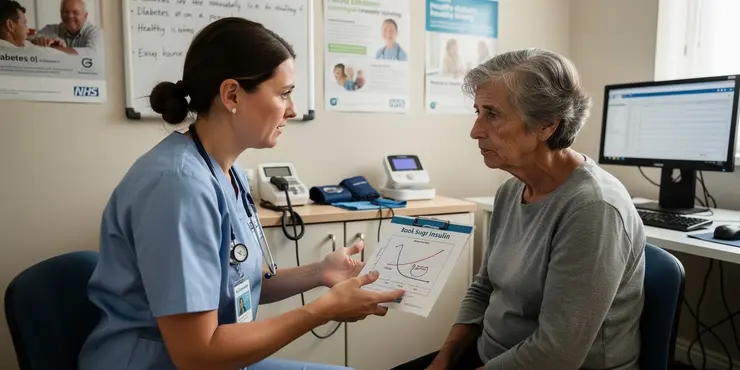
What is the role of insulin in Type 2 Diabetes?
Relevance: 88%
-
What are the limitations of type 1 diabetes screening?
Relevance: 88%
-

Can stress affect my Type 2 Diabetes?
Relevance: 87%
-
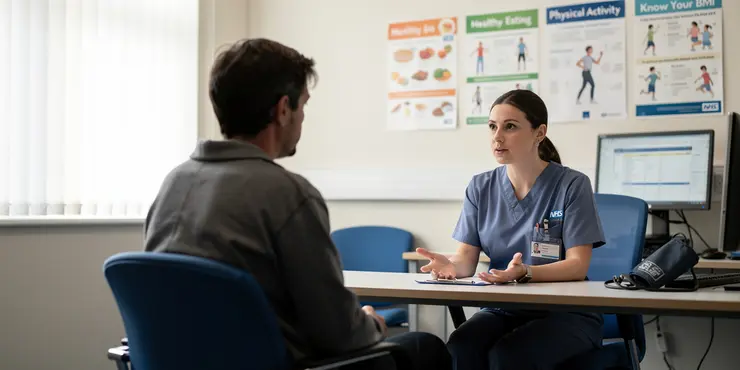
Is Wegovy used for type 2 diabetes management?
Relevance: 86%
-
Can environmental factors contribute to type 1 diabetes?
Relevance: 85%
-
What does screening for type 1 diabetes involve?
Relevance: 85%
-
How accurate are the tests for predicting type 1 diabetes?
Relevance: 85%
-
Are there any clinical trials for preventing type 1 diabetes?
Relevance: 84%
-
Does insurance cover type 1 diabetes screening?
Relevance: 84%
-
What are the benefits of early detection of type 1 diabetes?
Relevance: 82%
-
Where can I have my child screened for type 1 diabetes?
Relevance: 82%
-
At what age should my child be screened for type 1 diabetes?
Relevance: 82%
-
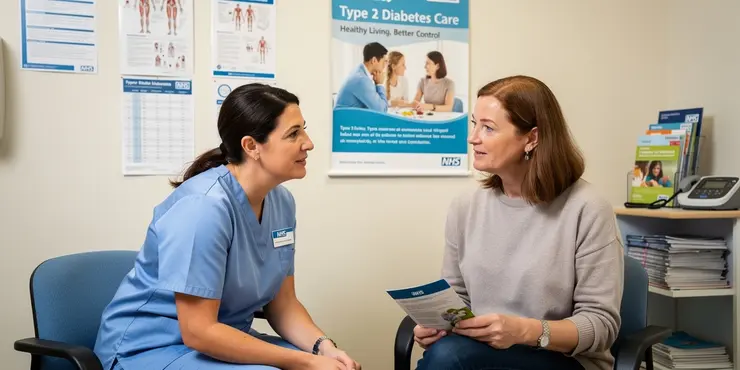
Where can I find support for managing Type 2 Diabetes in the UK?
Relevance: 82%
-
Why should I consider screening my child for type 1 diabetes?
Relevance: 82%
-
Are there any symptoms of type 1 diabetes I should watch for in my child?
Relevance: 81%
-
What support is available for families dealing with type 1 diabetes?
Relevance: 81%
-
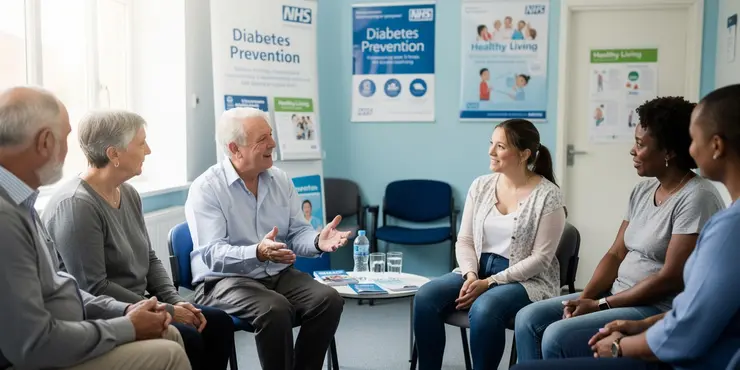
NHS Diabetes Prevention Programme; Preventing Type 2 and improving outcomes for people with diabetes
Relevance: 81%
-
Should siblings of a child with type 1 diabetes also be screened?
Relevance: 80%
-
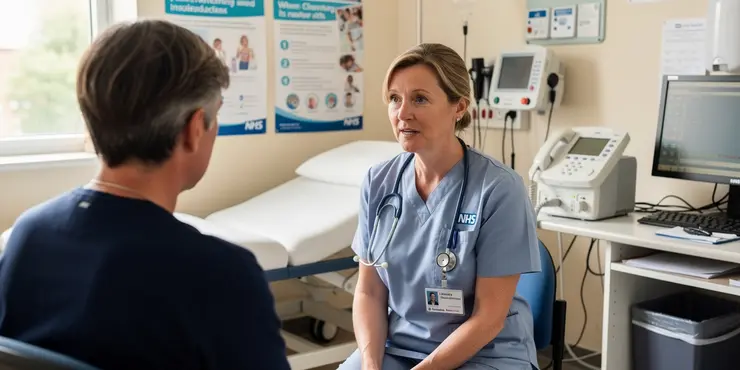
Type 2 diabetes - common signs and symptoms UHL NHS Trust
Relevance: 78%
-

What can I eat if I have Type 2 Diabetes?
Relevance: 76%
-
What lifestyle changes can lower my child's risk of type 1 diabetes?
Relevance: 76%
-

Patient voices in type one diabetes - I would have done things differently.
Relevance: 73%
What Is Type 2 Diabetes?
Type 2 diabetes is a chronic condition that affects the way your body processes blood sugar (glucose). It occurs when the body becomes resistant to insulin or when the pancreas fails to produce enough insulin. Understanding this condition is crucial for effective management and prevention of complications.
Symptoms of Type 2 Diabetes
Common symptoms of type 2 diabetes include increased thirst, frequent urination, unexplained weight loss, fatigue, blurred vision, and slow-healing sores or frequent infections. Recognising these symptoms early can lead to a prompt diagnosis and timely management.
Causes and Risk Factors
Type 2 diabetes is influenced by several factors including genetics, obesity, physical inactivity, and poor diet. People who have a family history of diabetes, are over the age of 45, or belong to certain ethnicities (such as South Asian, African-Caribbean, or Black African) are at a higher risk of developing the condition.
Treatment and Management
Managing type 2 diabetes involves lifestyle changes, regular monitoring of blood sugar levels, and possibly medication or insulin therapy. A balanced diet, regular physical activity, and weight management are key components of a diabetes care plan. Healthcare professionals can provide personalised treatment plans to help manage the condition effectively.
Living with Type 2 Diabetes
Living with type 2 diabetes requires careful and continuous management. Education on diabetes self-care is vital. Support from healthcare providers, diabetes education programmes, and peer support groups can help individuals lead a healthy and active life while managing their condition.
Prevention
Preventing type 2 diabetes involves maintaining a healthy weight, eating a balanced diet rich in whole grains, fruits, and vegetables, engaging in regular physical activity, and avoiding excessive consumption of sugary and processed foods. Regular health check-ups can help identify and manage risk factors early on.
Support from Diabetes UK
Diabetes UK offers a wealth of resources, educational materials, and support services for those affected by type 2 diabetes. Engaging with these resources can provide valuable information and encouragement for effective diabetes management and improved quality of life.
What Is Type 2 Diabetes?
Type 2 diabetes is an illness that changes how the body handles sugar from food. It happens when the body doesn't use insulin well or doesn't make enough insulin. Knowing about this illness helps to manage it well and stop problems.
Symptoms of Type 2 Diabetes
If you have type 2 diabetes, you may feel very thirsty, need to pee often, lose weight for no reason, feel very tired, have blurry eyesight, or get cuts that heal slowly. Seeing these signs early helps doctors treat it soon.
Causes and Risk Factors
Things that can lead to type 2 diabetes are family history, being overweight, not moving much, and eating unhealthy food. People older than 45, or from some ethnic groups like South Asian, African-Caribbean, or Black African, can have a higher chance of getting it.
Treatment and Management
To handle type 2 diabetes, people should change their lifestyle, check blood sugar, and maybe take medicine. Eating healthy, moving more, and keeping a healthy weight are important parts of care. Doctors can make a special plan to help manage it well.
Living with Type 2 Diabetes
Living with type 2 diabetes means looking after yourself carefully all the time. Learning about how to take care of diabetes is important. Getting help from doctors, joining education programs, and talking to support groups can help people stay healthy and active.
Prevention
To prevent type 2 diabetes, try to keep a healthy weight, eat whole grains, fruits, and vegetables, exercise regularly, and eat less sugary and processed foods. Going to the doctor for regular check-ups can also help prevent diabetes early.
Support from Diabetes UK
Diabetes UK gives lots of help, like information and support services, for people with type 2 diabetes. Using these resources can help you learn more and live better with diabetes.
Frequently Asked Questions
What is Type 2 Diabetes?
Type 2 diabetes is a condition where the insulin your pancreas makes can't work properly, or your pancreas can't make enough insulin. This means your blood glucose levels keep rising.
What causes Type 2 Diabetes?
Type 2 diabetes can be caused by a combination of lifestyle and genetic factors. Being overweight or obese is a major risk factor.
What are the symptoms of Type 2 Diabetes?
Symptoms include excessive thirst, frequent urination, tiredness, and blurred vision.
How is Type 2 Diabetes diagnosed?
Type 2 diabetes is diagnosed through blood tests that measure your blood glucose levels.
Can Type 2 Diabetes be prevented?
While you can't change your genes, you can often prevent type 2 diabetes through a healthy diet, regular physical activity, and maintaining a healthy weight.
How is Type 2 Diabetes treated?
Treatment includes lifestyle changes, monitoring your blood glucose levels, and medications or insulin therapy if needed.
What can I eat if I have Type 2 Diabetes?
A balanced diet rich in fruits, vegetables, whole grains, and lean proteins is recommended, while limiting sugary and processed foods.
Is exercise important for managing Type 2 Diabetes?
Yes, regular physical activity helps manage blood glucose levels and overall health.
Can Type 2 Diabetes go away?
Type 2 diabetes is a lifelong condition, but it can go into remission with a strict lifestyle and medical intervention.
What complications are associated with Type 2 Diabetes?
Complications can include heart disease, stroke, kidney disease, vision problems, and nerve damage.
How often should I check my blood glucose levels?
Your doctor will advise you on how often to check your levels based on your treatment plan.
Is Type 2 Diabetes hereditary?
There is a genetic component to type 2 diabetes, meaning it can run in families.
What is the role of insulin in Type 2 Diabetes?
Insulin helps glucose enter your cells to be used for energy. In type 2 diabetes, your body either doesn’t use insulin properly or doesn’t produce enough.
Can stress affect my Type 2 Diabetes?
Yes, stress can affect your blood glucose levels and can make managing diabetes more difficult.
Where can I find support for managing Type 2 Diabetes in the UK?
Diabetes UK is a great resource for information and support. Your GP and local diabetes care team are also essential sources of support.
What is Type 2 Diabetes?
Type 2 Diabetes is when your body has trouble using sugar (glucose) for energy. Sugar builds up in your blood instead of going into your cells. This can make you feel tired.
Eating healthy foods, being active, and taking medicine can help you stay healthy. Ask someone you trust if you have questions.
Using pictures, videos, or talking to a friend can make learning about diabetes easier.
Type 2 diabetes is a health problem. It happens when your body can't use insulin the right way, or your body can't make enough insulin. This makes your blood sugar go up.
What Makes Type 2 Diabetes Happen?
Type 2 diabetes happens when your body can't use sugar properly. This can be because of your lifestyle or your family's genes. Being very overweight makes it more likely.
What happens to your body when you have Type 2 Diabetes?
Type 2 Diabetes is when your body has trouble using sugar for energy. Here are some signs you might notice:
- You feel very thirsty a lot.
- You feel really tired even if you haven't done much.
- You may need to pee a lot.
- Your cuts or wounds heal slowly.
- Your vision might get blurry.
These signs can be different for everyone. If you think you have these signs, talk to a doctor. They can help you feel better. You can also use pictures to understand better, or ask someone you trust to help explain.
If you have this, you might feel very thirsty, need to pee a lot, feel really tired, and have trouble seeing clearly.
How do doctors know if someone has Type 2 Diabetes?
Doctors can find out if a person has Type 2 Diabetes through simple tests. Here are the steps:
- Blood Test: A doctor will take a small amount of blood. This test shows how much sugar is in the blood.
- Health Check: The doctor may ask questions about how you feel and look for signs like feeling very thirsty or tired.
- Support Tools: Using picture charts or videos might help you understand diabetes better.
These tools and tests help doctors find out if someone has Type 2 Diabetes, so they can get the right help and treatment.
Doctors find out if you have Type 2 diabetes with a blood test. This test checks the sugar in your blood.
Can Type 2 Diabetes be stopped?
Yes, you can stop Type 2 Diabetes. Here are some ways to help:
- Exercise: Move your body every day. It can be fun, like playing a sport or dancing.
- Eat healthy food: Eat more fruits and vegetables. Try to eat less sugary snacks and drinks.
- Stay at a healthy weight: Ask a doctor to help you understand what a healthy weight is for you.
- Visit the doctor: Get regular check-ups to stay healthy.
It can help to use tools like:
- Pictures of healthy foods.
- A chart or drawing to track your exercise.
- Ask a family member or friend for support.
You can't change what you got from your parents, like your genes. But you can stop yourself from getting type 2 diabetes. You can do this by eating healthy food, moving your body every day, and keeping your weight healthy.
How do you treat Type 2 Diabetes?
If you have Type 2 Diabetes, here is what you can do to feel better:
- Eat Healthy Foods: Choose fruits, vegetables, and whole grains.
- Exercise: Try to move your body every day. You could walk, dance, or play sports.
- Take Medicine: Sometimes, doctors give medicine to help.
- Check Your Sugar Levels: You can use a small tool to see how much sugar is in your blood.
- Visit Your Doctor: Go to the doctor to make sure you're doing okay.
Supportive tools can help you. You can use:
- Meal Plans: Like a simple guide for what to eat.
- Activity Trackers: These help you keep track of how much you move each day.
- Reminders: You can have reminders for taking medicine or checking sugar levels.
Talk to your doctor or nurse. They can help you find what works best for you. Remember, you are not alone, and these steps can make you feel better and stay healthy.
To help stay healthy, you can change some things in your life, check your blood sugar, and take medicine or insulin if you need to.
What can I eat if I have Type 2 Diabetes?
If you have Type 2 Diabetes, it is important to eat healthy foods. This helps to keep your blood sugar levels steady. Here are some tips:
- Eat lots of vegetables. They are good for you and have low sugar.
- Choose whole grains like brown rice and whole-grain bread. They help keep your energy stable.
- Pick proteins like chicken, fish, or beans. They help to keep you strong.
- Drink water instead of sugary drinks.
- Eat fruits, but not too many, because they have natural sugar.
Try to eat at the same times every day. This helps your body manage sugar better.
Ask a doctor or a nutrition expert for advice. They can help you make a food plan just for you.
It's good to eat different kinds of foods. Eat lots of fruits and vegetables. Try to eat whole grains like brown bread and rice. Eat lean meats like chicken and fish. Eat less sugary foods like candies. Try not to eat too many processed foods like chips.
If reading is hard, try listening to audiobooks or using text-to-speech tools to help you understand better.
Is exercise important for managing Type 2 Diabetes?
Yes, exercise can help people with Type 2 Diabetes. It helps the body use insulin better and keeps blood sugar levels steady.
Here are some simple exercises you can try:
- Walking: Go for a short walk every day.
- Stretching: Stretch your arms and legs gently.
- Dancing: Dance to your favorite music.
It's good to talk with a doctor before starting a new exercise routine. You can also set small goals, like exercising for 5 or 10 minutes each day. Use a timer or ask someone for help to keep track of the time.
Yes, doing exercise often can help keep your blood sugar levels steady and make you healthier.
Can Type 2 Diabetes Go Away?
Many people want to know if Type 2 Diabetes can go away.
Type 2 Diabetes is a health condition that affects how your body uses sugar.
It is important to eat healthy and stay active. This can help you manage diabetes better.
Some people can have normal blood sugar levels if they make big changes to their lifestyle.
This means eating healthy food, exercising, and losing weight if needed.
These changes can help, but it does not mean diabetes completely goes away.
It's important to talk to a doctor for help and advice.
Using tools like meal plans or activity trackers can be helpful.
Remember, managing diabetes is a journey and doctors can guide you.
Type 2 diabetes is a condition that lasts a long time. But, you can make it go away for a while if you follow a special diet and take medicine.
What problems can happen with Type 2 Diabetes?
People with Type 2 Diabetes can have other health problems. These problems can be serious if not taken care of. Here are some common problems:
- Heart trouble: Diabetes can make your heart sick.
- Eye problems: It can make it hard to see.
- Nerve damage: It can make your hands and feet feel funny or painful.
- Kidney issues: Your kidneys might not work well.
It is important to see a doctor. They can help you stay healthy. Eating good food and moving your body every day can help too.
These problems can happen:
- Heart gets sick.
- You might have a stroke.
- Your kidneys might stop working well.
- It's hard to see clearly.
- Nerves can get hurt.
To help you understand, you can:
- Use pictures or videos.
- Ask someone to explain harder words.
- Use easy words when talking about these problems.
How often should I check my blood sugar levels?
It's good to check your blood sugar every day. Ask your doctor when is the best time for you. They can help you make a plan.
You might check your blood sugar in the morning or before you eat. Write down your numbers in a notebook.
You can use a blood sugar meter to help you check. If you need help, ask a nurse or a doctor to show you how to use it.
Your doctor will tell you when to check your levels. They will make a plan just for you.
Can Type 2 Diabetes run in families?
Type 2 diabetes can be passed down in families through genes. This means if your family has it, you might have it too.
What Does Insulin Do in Type 2 Diabetes?
Insulin helps your body use sugar from food for energy.
In Type 2 Diabetes, your body has a hard time using insulin.
This can make your blood sugar too high.
To help, you can use tools like pictures or videos to understand more about insulin.
Insulin helps sugar get into your cells to give you energy. With type 2 diabetes, your body doesn’t use insulin in the right way or doesn’t make enough.
Can stress make my Type 2 Diabetes worse?
Feeling stressed can change your blood sugar levels.
Here’s how stress can affect diabetes:
- Stress can make your blood sugar go up.
- It can be harder to control your diabetes when stressed.
Here are some ways to manage stress:
- Try deep breathing or meditation.
- Exercise regularly to feel better.
- Talk about your feelings with family or friends.
If you find it hard to manage your stress or diabetes, it's good to talk to a doctor or nurse. They can help you find ways to feel better.
Yes, feeling stressed can change the amount of sugar in your blood. This can make it harder to take care of diabetes.
Where can I get help to manage Type 2 Diabetes in the UK?
If you have Type 2 Diabetes and live in the UK, there are places that can help you.
Talk to your doctor. They can give you advice and support.
Look for diabetes groups online. They have tips and share stories.
Visit the website of Diabetes UK. They help people with diabetes.
Remember, you are not alone, and there are people who can help you.
Diabetes UK is a great place to get help and learn more about diabetes. You can also talk to your doctor or the local diabetes care team for support.
Useful Links
This website offers general information and is not a substitute for professional advice.
Always seek guidance from qualified professionals.
If you have any medical concerns or need urgent help, contact a healthcare professional or emergency services immediately.
Some of this content was generated with AI assistance. We’ve done our best to keep it accurate, helpful, and human-friendly.
- Ergsy carfully checks the information in the videos we provide here.
- Videos shown by Youtube after a video has completed, have NOT been reviewed by ERGSY.
- To view, click the arrow in centre of video.
- Most of the videos you find here will have subtitles and/or closed captions available.
- You may need to turn these on, and choose your preferred language.
- Go to the video you'd like to watch.
- If closed captions (CC) are available, settings will be visible on the bottom right of the video player.
- To turn on Captions, click settings .
- To turn off Captions, click settings again.
More Items From Ergsy search
-

Type 1 Diabetes supporting adults to manage Type 1 diabetes
Relevance: 100%
-
What is type 1 diabetes?
Relevance: 99%
-

Is Type 2 Diabetes hereditary?
Relevance: 98%
-

What is type 1 diabetes?
Relevance: 98%
-

What Is Type 2 Diabetes? | 2 Minute Guide | Diabetes UK
Relevance: 95%
-
What is the difference between type 1 and type 2 diabetes?
Relevance: 95%
-

Is Ozempic suitable for type 1 diabetes?
Relevance: 94%
-
Is there a genetic predisposition to type 1 diabetes?
Relevance: 94%
-

What causes Type 2 Diabetes?
Relevance: 93%
-

Can Type 2 Diabetes go away?
Relevance: 93%
-

Can Type 2 Diabetes be prevented?
Relevance: 93%
-

What are the symptoms of Type 2 Diabetes?
Relevance: 92%
-

How is Type 2 Diabetes diagnosed?
Relevance: 92%
-

How to manage type 2 diabetes
Relevance: 92%
-

Can Mounjaro be used in type 1 diabetes?
Relevance: 90%
-

How is Type 2 Diabetes treated?
Relevance: 89%
-

What complications are associated with Type 2 Diabetes?
Relevance: 88%
-
Should I screen my child for type 1 diabetes?
Relevance: 88%
-

What is the role of insulin in Type 2 Diabetes?
Relevance: 88%
-
What are the limitations of type 1 diabetes screening?
Relevance: 88%
-

Can stress affect my Type 2 Diabetes?
Relevance: 87%
-

Is Wegovy used for type 2 diabetes management?
Relevance: 86%
-
Can environmental factors contribute to type 1 diabetes?
Relevance: 85%
-
What does screening for type 1 diabetes involve?
Relevance: 85%
-
How accurate are the tests for predicting type 1 diabetes?
Relevance: 85%
-
Are there any clinical trials for preventing type 1 diabetes?
Relevance: 84%
-
Does insurance cover type 1 diabetes screening?
Relevance: 84%
-
What are the benefits of early detection of type 1 diabetes?
Relevance: 82%
-
Where can I have my child screened for type 1 diabetes?
Relevance: 82%
-
At what age should my child be screened for type 1 diabetes?
Relevance: 82%
-

Where can I find support for managing Type 2 Diabetes in the UK?
Relevance: 82%
-
Why should I consider screening my child for type 1 diabetes?
Relevance: 82%
-
Are there any symptoms of type 1 diabetes I should watch for in my child?
Relevance: 81%
-
What support is available for families dealing with type 1 diabetes?
Relevance: 81%
-

NHS Diabetes Prevention Programme; Preventing Type 2 and improving outcomes for people with diabetes
Relevance: 81%
-
Should siblings of a child with type 1 diabetes also be screened?
Relevance: 80%
-

Type 2 diabetes - common signs and symptoms UHL NHS Trust
Relevance: 78%
-

What can I eat if I have Type 2 Diabetes?
Relevance: 76%
-
What lifestyle changes can lower my child's risk of type 1 diabetes?
Relevance: 76%
-

Patient voices in type one diabetes - I would have done things differently.
Relevance: 73%


